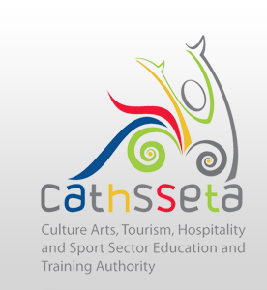
CATHSSETA (Culture Arts Tourism Hospitality Sport Sector Education and Training Authority), in conjunction with GreenMatterza (the engine for growing BioDiversity skills and developing the right people at the right time for the green economy) is providing the means and platform to support a university-based research programme in HCD (Human Capital Development) for BioDiversity sector.
Rhodes University’s Environmental Learning Research Centre has been nominated as their primary partner for this research programme that will involve three full time PhD studies and four full time Masters studies. This partnership promises to provide adequate research supervision, student support, academic and professional networks, research and study costs, and cost of living for the programme.
The need for this university-based research programme in HCD for BioDiversity sector is because there is ample evidence that there are skills shortages, inadequately qualified individuals, and unemployed graduates in the environmental sector more broadly and in biodiversity more specifically (BHCD, 2010). Although the production of an Environmental Sector Skills Plan (DEA, 2010) and an aligned Biodiversity Human Capital Development Strategy (www.greenmatter.co.za) have thrown a light on these issues, there are still large gaps in our information about the exact nature and scope of these skills needs, and our understanding of how best to address them (HSRC, 2009).
This shortage of information in the biodiversity sector has a number of dimensions including:
- A shortage of information on the scope and size of the sector and the size of the demand for particular skills
- A lack of widely shared understanding about the occupations, and documented career and study pathways in the sector
- Inadequate insight into the best ways to address the looming quality and relevance issues in the human capital development pipeline in South Africa.
Information and research gaps have a significant impact on the ability to address skills development and employment creation needs, and to monitor and evaluate our progress in this regard. The under lying causes of the dearth of data and insights include:
- The lack of environmental categories and sub-categories in the Labour Force Survey and StatsSA employment data
- Lack of consistency in occupational terminology between the diverse organisations in the dynamic and poorly defined environmental sector or sectors
- Inadequate institutional mechanisms to maintain and refresh sector wide databases
- Poorly coordinated and informed human resource planning in environmental organisations, resulting in limited insight into future and even current skills needs within organisations
- Limited focus on HCD and environmental HCD in South African universities or other centres of expertise
- Limited high level (academic) HCD expertise, particularly in combination with an understanding of the environmental and biodiversity fields.
Therefore these scholarships seek to develop national capability for human capacity development, skill planning and implementation. Application for sponsorship for postgraduate studies at both Masters and/or PhD level in the area of Environmental Education closes on the 15th of January and applicants for Masters must be in possession of a relevant Honours degree or equivalent; while PhD applicants must possess a relevant Masters degree.
Although study areas in the programme will be defined and refined according to student capabilities and their research interest as well as sector research needs, the following are a broad framework for the forthcoming studies.
- Career paths, learning pathways and occupations in and around the biodiversity sector in SA
- Mechanisms to improve work-integrated learning for biodiversity related skills
- Success factors in teacher professional development for the environment sector in SA
- Matching supply and demand for biodiversity related skills in SA
- Counting Green Jobs - Labour market analysis for the biodiversity sector
- Choosing Green – Survey of study and career choices made by undergraduate
- Students in the Life Sciences at a selection of SA universities; and
- Analysis of HEMIS data with case examples to explain trends relevant to the biodiversity sector’.
Applications for sponsorship close on the 15th of January 2013
For further details concerning the application requirement, process, contact person, please click here for the programme flyer CATHSSETA flyer
